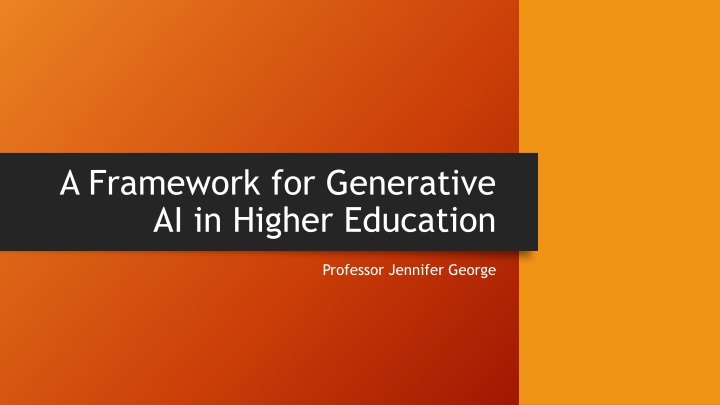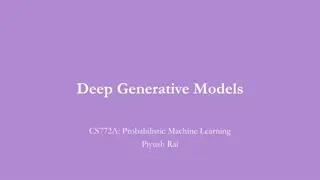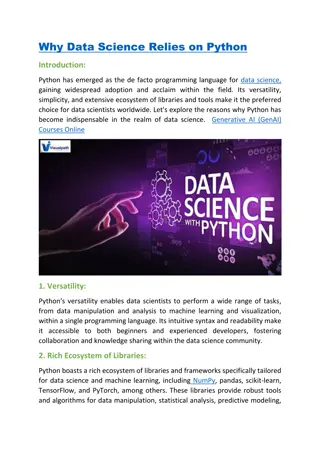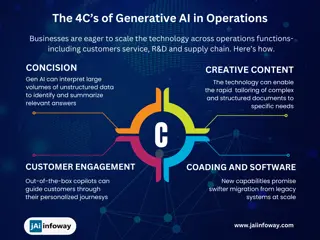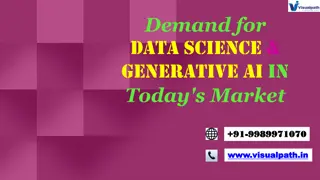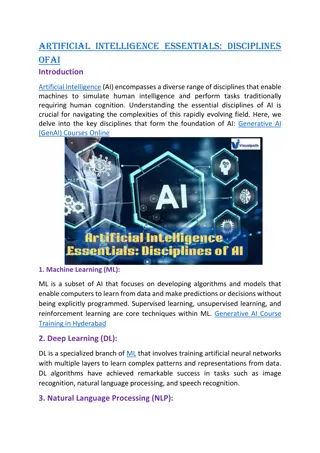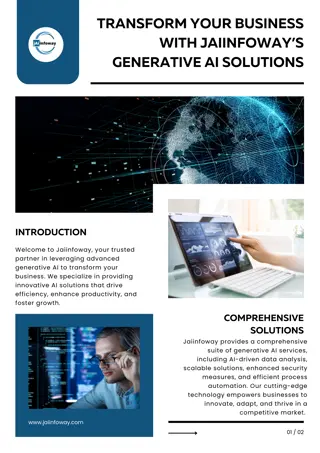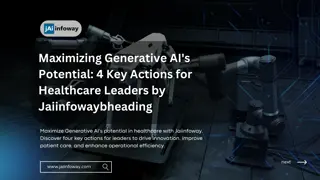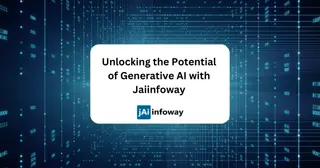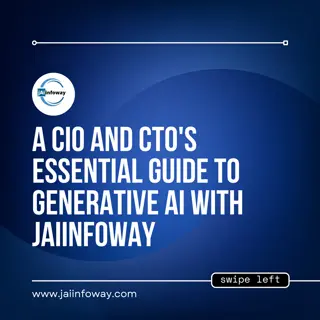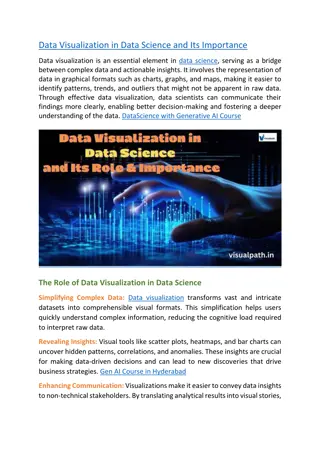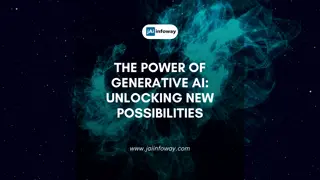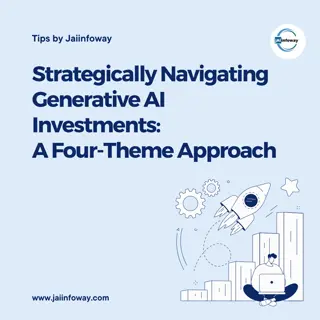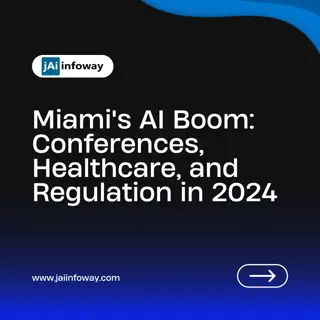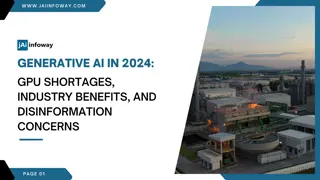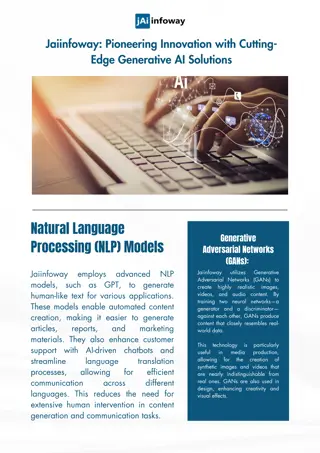A Framework for Generative AI in Higher Education by Professor Jennifer George
"Exploring the reality of Gen AI tools in Higher Education through student surveys, statistics, and critical questions on reliability, ethics, and impact. Insights on student usage, concerns, support, and staff knowledge in integrating AI technology."
Download Presentation

Please find below an Image/Link to download the presentation.
The content on the website is provided AS IS for your information and personal use only. It may not be sold, licensed, or shared on other websites without obtaining consent from the author.If you encounter any issues during the download, it is possible that the publisher has removed the file from their server.
You are allowed to download the files provided on this website for personal or commercial use, subject to the condition that they are used lawfully. All files are the property of their respective owners.
The content on the website is provided AS IS for your information and personal use only. It may not be sold, licensed, or shared on other websites without obtaining consent from the author.
E N D
Presentation Transcript
A Framework for Generative AI in Higher Education Professor Jennifer George
My Background Professor in Computing Human Computer Interaction > Accessibility Tech + disability Tech + (faith and belief) Interest in legislation, regulations, policies Leadership roles in Higher Education: Head of Computing, Chair AI Working Group Teaching and scholarship (20+ years) Impact work Student experience
Gen AI Publicly available for 2-3 years In the context of HE, used for eg. Preparing courses Creating teaching resources Creating assessments Completing assessments Marking / providing feedback Using for research
How much is this a reality? (HEPI data) Out of over 1,000 students who were surveyed in 2024, 92% use Gen AI tools in some form (up from 66% from 2023) 88% use it for assessments (up from 53%) Main use is explanations, summaries and recommended reading They use it as it saves time and quality of their work Those who don t use it for assessment are worried of being accused of academic misconduct and / or getting false or biased results Women are more worried than men Wealthier students also worried less (possibly paid services) Digital divide has widened
A few more statistics 80% of students say their HEIs have a clear AI policy 76% know the use of AI would be spotted in their work 36% of students have received support to develop Gen AI skills 42% of students believe their staff are knowledgeable in AI to help them Students are neutral about their assessments being graded by AI
Some questions and debates Should students be allowed to used? Should staff be allowed to use? Is the information from Gen AI reliable? Is the information from Gen AI ethical? How important are prompt engineering skills for careers? What happens to my usage data? When students record us, what happens to what we say? Can students with disabilities continue to use their devices?
Ethics Governance Research Equity Wellbeing and Safety Policy Resources for staff and students
GenAI Framework and outcomes Understanding about our students Policy overarching Influence existing policies eg. Data and GenAI Assessment CPD and Guides What is Gen AI Gen AI tools Productivity tools Prompt engineering Setting up your own LMS Research and coursework Ethics Publications Employment Staying safe Ethics Governance Research Equity Wellbeing and Safety Policy Resources for staff and students
Ethics Bias and fairness detection Mis / disinformation Data and privacy Sustainability Exploitation How to check for ethical issues
Some questions to consider How neutral is AI and what are the political and financial driving forces? Can you train Gen AI in moral values? Is the responsibility for morality shifting from humans to AI? What s the role of Gen AI in human flourishing What s the role of Gen AI in stewardship What does the use of Gen AI do to human relationships and the environment?
Questions? j.george@gold.ac.uk
Exploitation Content tagging and content moderation for LLMs is completed by millions of people across the world Underpaid Have to watch inappropriate content to reject -> trauma
LLMs can consume 1000s of megawatt hours of electricity Emit hundreds of tons of carbon Environmental impact Model training can lead to evaporation of astonishing amount of fresh water into the atmosphere for data center heat rejection Generation of electricity is through fossil fuel combustion -> local air pollution -> thermal pollution in water Product of solid waste
Collection of sensitive data Collection of data without consent Data and Privacy Use of data without permission Unchecked surveillance and bias Data exfiltration Data leakage
